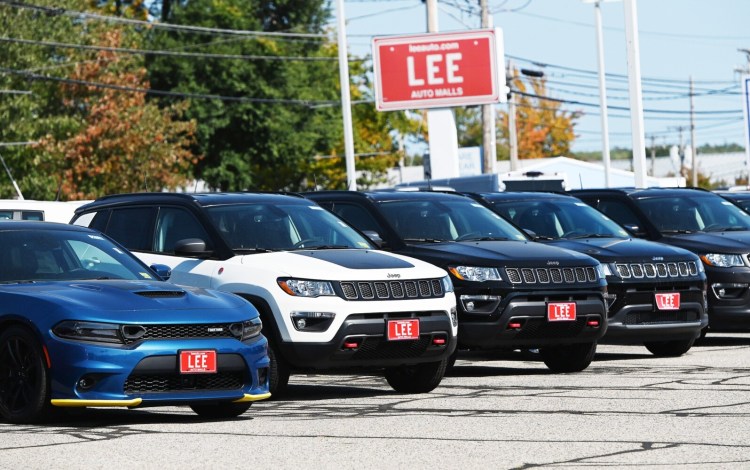First it was hand sanitizer. Then toilet paper.
For the latest shortage caused by the coronavirus pandemic, look to new car dealers’ lots.
John Emerson, owner of Emerson Chevrolet Buick in Auburn, said some popular models are in short supply, because of factory shutdowns in late spring caused by the pandemic.
For instance, Emerson said he typically likes to have 40 to 50 new Chevrolet Silverados, a popular large pickup truck, on his lot. These days, however, it’s more like a half-dozen.
The same goes for the Equinox, Emerson said, with only four or five models of the SUV on the lot, about one-tenth of his normal supply.
That’s why he treats every invoice he gets from the carmakers as a reason for celebration. The car may not yet be on the lot, but the invoice means it’s made, has a vehicle identification number and is likely to be on the way to Emerson’s showroom soon.
“They’re gradually ramping up, but it’s slow,” he said.
Other car dealers in southern Maine report similar shortages at a time of year when carmakers are typically touting new models to entice buyers into their showrooms.
Josh Douglas, general manager of Lee Auto Malls in Westbrook, said his new-vehicle inventories are running at about 70 percent of normal, although it varies by model and manufacturer. He said foreign carmakers may have done a better job of keeping inventories near typical levels, but those dealers often carry fewer cars on their lots than dealers that sell American-made vehicles, so a shortfall might not have the same impact.

The general manager of Lee Auto Malls in Westbrook said his new-vehicle inventories are only about 70 percent of normal. Shawn Patrick Ouellette/Staff Photographer
The ability of countries to control the spread of the pandemic was reflected in the health of their car industries, said Mark Camp, general manager of Rowe Ford and Rowe Hyundai in Westbrook.
He said Hyundai, which is based in South Korea, was able to keep production of its cars high this spring because that country was apparently able to get a better handle on the spread of the virus and could keep factories humming. Ford, on the other hand, seemed to be hit harder by the pandemic at its North American manufacturing facilities, and deliveries of new models were disrupted more severely.
Emerson said it’s also important to remember that other companies that supply parts to new car manufacturers also were forced to shut down in the spring, and that it likely slowed the ability of carmakers to ramp up production at their plants once they reopened.
“It affected the whole supply chain,” he said.
Most car dealers shift their focus to used car sales if there’s any disruption to the new-car market, and the current state of the industry is no different. Douglas said the used-car market was tight during the summer, and that kept prices high.
Industry observers had expected that used car inventories might grow this summer, especially since the Hertz rental car company declared bankruptcy earlier in the year. But that sudden influx of used cars from Hertz never materialized, Douglas and other dealers said.
Douglas, Emerson and others said the ability to shift from sales of new cars to used cars has kept their businesses relatively healthy despite the pandemic and the shortage of new cars. Most dealers had to close down their showrooms in the spring and shifted to contactless test drives and arms-length transactions to continue to make sales.
The dealers said the shortage of new cars hits at a bad time because car buyers often look for new models that debut in the early fall. However, that tradition has eased in recent years, and buyers know that new models also will be available at other times of the year.
They also said they expect the shortage of new cars to ease in the coming months as carmakers ramp up production to make up the backlog of orders and get new models out to the dealers.
“We pride ourselves on a good relationship with the factories, and it’s already starting to improve,” Douglas said.
Comments are not available on this story.
Send questions/comments to the editors.



